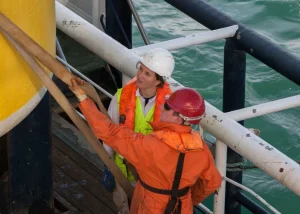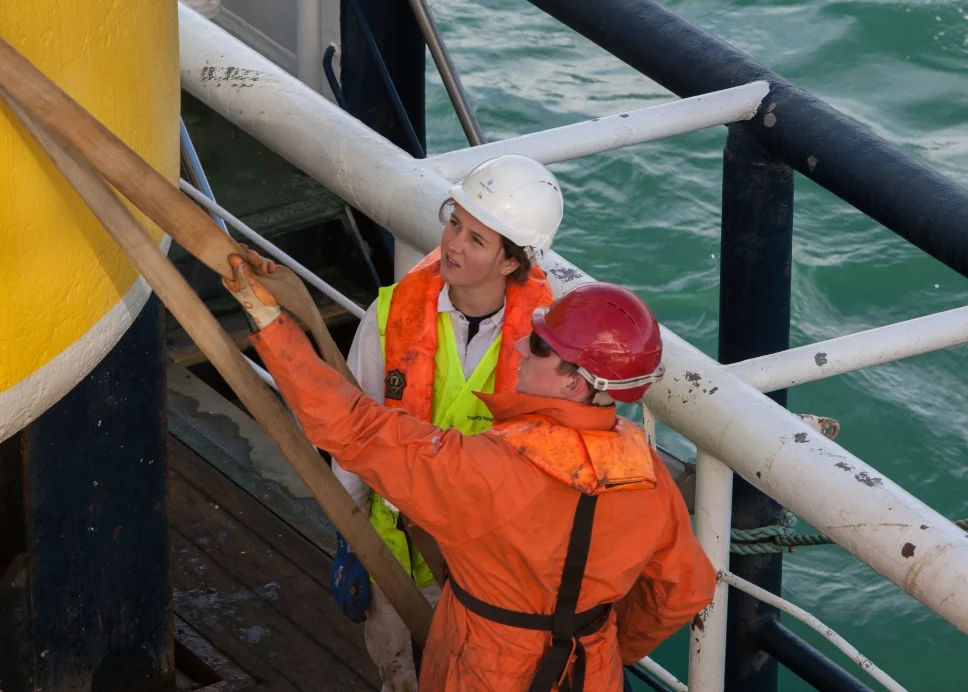Safety and pollution prevention are critical aspects of a ship engineering officer’s responsibilities. Ensuring the safety of the crew, vessel, and environment requires in-depth knowledge of international safety regulations, emergency procedures, and pollution control measures. Shipboard systems must comply with stringent global maritime laws, including the Safety of Life at Sea (SOLAS) and MARPOL conventions, to mitigate risks and minimize the environmental impact of shipping operations. In this chapter, we will explore the essential elements of shipboard safety management and pollution prevention, focusing on fire safety systems, pollution regulations, and emergency preparedness.

Safety of Life at Sea (SOLAS) Regulations
The SOLAS convention is a vital international treaty that sets minimum safety standards for the construction, equipment, and operation of ships. It covers various safety aspects, from fire protection to life-saving appliances, ensuring that vessels are equipped to protect both the crew and passengers in emergencies.
- Fire Detection and Firefighting Systems
Fire is one of the most significant hazards on board a ship. Therefore, ship engineering officers must ensure that fire detection and firefighting systems are in place and well-maintained.- Fire detection systems monitor high-risk areas such as the engine room, cargo holds, and accommodation spaces. These systems are designed to detect smoke, heat, or gas, triggering alarms and automatic firefighting systems.
- Firefighting equipment includes portable fire extinguishers, fixed fire suppression systems (such as CO₂ or foam systems), fire pumps, and hoses. Engineering officers must ensure that fire suppression systems are operational, regularly inspected, and that the crew is trained in their proper use. Additionally, fire drills should be conducted regularly to prepare the crew for real emergencies.
- Lifeboat and Survival Craft Maintenance
SOLAS also mandates that ships are equipped with lifeboats and survival craft, ensuring the crew’s safety during abandon-ship scenarios. Regular maintenance of these critical pieces of equipment is essential to ensure they function correctly in an emergency.
Lifeboats must be checked for structural integrity, proper securing, and launching mechanisms. Survival craft, such as life rafts, should be regularly inspected, and their hydrostatic release mechanisms tested to ensure they can be deployed quickly and efficiently. Additionally, life-saving equipment, including life jackets, distress signals, and emergency food rations, should be maintained according to SOLAS standards.
International Regulations on Marine Pollution (MARPOL)
The MARPOL (Marine Pollution) convention addresses the prevention of pollution from ships. It covers pollution by oil, chemicals, sewage, garbage, and air emissions. Compliance with MARPOL regulations is essential for reducing the environmental impact of maritime activities and ensuring sustainable shipping practices.
- Oil Pollution Prevention (MARPOL Annex I)
MARPOL Annex I sets out regulations to prevent pollution by oil, including guidelines for oil discharge and the handling of oily waste. Ships are required to have Oil Water Separators (OWS) installed to remove oil from bilge water before it is discharged into the sea.
Engineering officers must ensure that the OWS is functioning correctly and that bilge water is treated to reduce oil content to acceptable levels before discharge. Proper documentation and record-keeping in the Oil Record Book (ORB) are required to demonstrate compliance with discharge regulations during inspections by port state control authorities. - Sewage and Garbage Management (MARPOL Annexes IV and V)
Annex IV of MARPOL deals with the prevention of pollution by sewage, while Annex V governs the disposal of garbage from ships.
Ships must have sewage treatment plants or holding tanks to manage sewage discharge in compliance with regulations. Garbage management plans outline how waste is segregated, stored, and disposed of in an environmentally responsible manner. Engineering officers play a key role in overseeing the correct operation of waste management systems and ensuring that garbage is handled according to the ship’s garbage management plan. - Air Emissions and Sulfur Limits (MARPOL Annex VI)
MARPOL Annex VI addresses the control of air emissions from ships, including sulfur oxides (SOₓ), nitrogen oxides (NOₓ), and particulate matter. The regulation mandates the use of low-sulfur fuel or exhaust gas cleaning systems (scrubbers) to limit emissions.
Engineering officers must ensure compliance with Emission Control Areas (ECAs), where stricter sulfur limits are imposed. They should also monitor the operation of scrubbers or alternative technologies designed to reduce air pollutants. Additionally, officers must manage the fuel changeover process when entering or exiting ECAs, ensuring a seamless transition to the appropriate fuel grade.
Ballast Water Management and Oil-Water Separators
Ballast water management and oil-water separation systems are crucial for protecting the marine environment and preventing the spread of invasive species and oil pollution.
- Ballast Water Management Systems (BWMS)
Ballast water is essential for maintaining ship stability during voyages, but it can also introduce invasive species into new ecosystems. The Ballast Water Management Convention (BWMC) sets international regulations to control ballast water discharge and reduce the environmental impact. Ships must be equipped with Ballast Water Treatment Systems (BWTS) to treat ballast water before discharge, ensuring that harmful aquatic organisms are removed or neutralized.
Engineering officers are responsible for ensuring that the BWMS operates effectively, maintaining records of ballast water exchanges and discharges in the Ballast Water Record Book (BWRB), and ensuring compliance during inspections. - Oil-Water Separators (OWS)
OWS systems are designed to separate oil from bilge water before it is discharged overboard. The discharge of untreated oily water is prohibited under MARPOL regulations, and strict limits are set on the oil content of discharged water.
Engineering officers must maintain and monitor the OWS system, ensuring it is properly calibrated and functioning within regulatory limits. Regular testing, maintenance, and record-keeping are required to demonstrate compliance with oil discharge standards.
Pollution Control and Preventive Measures
In addition to compliance with MARPOL regulations, engineering officers must implement pollution control measures to minimize the environmental impact of the ship’s operations.
- Fuel Management
Proper fuel management is essential for reducing air emissions and ensuring compliance with sulfur limits. Engineering officers must manage fuel quality, maintain bunker delivery notes to verify the sulfur content, and operate fuel treatment systems to optimize combustion and reduce harmful emissions. In areas with stringent environmental controls, officers may need to oversee the operation of exhaust gas scrubbers or switch to compliant fuels as required. - Waste Minimization
Reducing the generation of waste on board is an important pollution prevention strategy. Engineering officers can implement measures to reduce, reuse, and recycle waste, minimizing the amount of garbage that needs to be discharged ashore. Efficient waste management systems, including incinerators and compactors, help reduce the volume of waste produced by the ship, improving compliance with garbage disposal regulations.
Emergency Preparedness and Response
In addition to preventing pollution during normal operations, ship engineering officers must be prepared to respond effectively to pollution incidents and emergencies.
- Pollution Response Plans
Ships are required to have Shipboard Oil Pollution Emergency Plans (SOPEP) and other response plans tailored to specific types of pollution risks. These plans outline procedures for containing and mitigating pollution in the event of an oil spill, chemical release, or other environmental incident.
Engineering officers must be familiar with the ship’s emergency response plans and be ready to deploy containment equipment, such as oil booms and absorbent materials, to control pollution in the event of an emergency. - Regular Drills and Training
Regular pollution response drills are required to ensure that the crew is adequately prepared to handle an environmental incident. Drills may involve deploying pollution containment equipment, testing communication procedures, and coordinating with shore-based response teams. Engineering officers play a key role in these drills, ensuring that all machinery and equipment are functioning correctly and that the crew can implement the response plan effectively.
Conclusion
Shipboard safety and pollution prevention are at the heart of a ship engineering officer’s responsibilities. Compliance with international conventions such as SOLAS and MARPOL is essential for ensuring the safety of the vessel, crew, and environment. By maintaining fire safety systems, lifeboats, pollution control equipment, and ballast water treatment systems, engineering officers play a critical role in minimizing risks and protecting the marine ecosystem. Effective management of these systems, coupled with thorough training and emergency preparedness, ensures that merchant ships operate safely and responsibly in a global maritime industry that increasingly prioritizes environmental sustainability.

